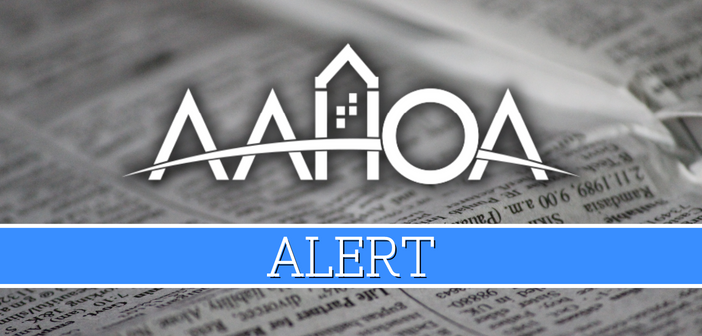ATLANTA, Ga., July 19 – As hotels continue to struggle with workforce shortages, the Asian American Hotel Owners Association (AAHOA) endorsed the Essential Workers for Economic Advancement Act, which would establish a market-driven visa system to help employers find workers for hard-to-fill positions while still prioritizing U.S. workers.
AAHOA Members employ more than 1 million people who collectively earn $47 billion a year. AAHOA, which represents 60% of U.S. hotel owners, met this morning with members of the Critical Labor Coalition and the office of the lead sponsor of the Essential Workers for Economic Advancement Act, Representative Lloyd Smucker of Pennsylvania.
The post-COVID workforce has been particularly challenging for hotels, which are seeing record numbers of guests but stagnant numbers of employees. Employment in the leisure and hospitality industry remains below its February 2020 level by 369,000, according to federal data, while Indeed lists more than 100,000 open hotel jobs.
The Essential Workers for Economic Advancement Act would help address this shortage by creating an H-2C visa program for nonimmigrant, nonagricultural service workers. It is intended for small businesses in industries with lower educational thresholds and comparatively low sales per employee. The visas would be issued for three years and would be renewable for up to an additional six years.
During the first year of the program, the H-2C visas would be capped at 65,000 workers. After the first year, the total number of annual visas could not exceed 85,000 or drop below 45,000 visas.
“Americans are traveling more than they have in years, but things have not returned to normal when it comes to the hospitality workforce. The hotel industry is still facing a worker shortage,” said AAHOA President & CEO Laura Lee Blake. “While progress is being made with potentially modifying the cap and providing a returning worker exemption for H-2B visas, the creation of an H-2C visa category with an additional 65,000 temporary visas, which could then increase or decrease in future years, will benefit all hoteliers, including our 20,000 AAHOA Members.”
According to the Critical Labor Coalition, the service industry has been hit hardest by the labor shortage. An increase in virtual and hybrid work-from-home options has reduced demand for positions that require in-person attendance. In fact, leisure and hospitality, along with the retail industries, have the highest quit rates since November 2020, consistently tracking at 4.1% and higher.
The Biden Administration announced its expansion of an additional 64,000 temporary nonagricultural worker H-2B visas for FY 2023. This is in addition to the 66,000 H-2B visas that are normally available each year. However, the total number of available visas does not come close to the estimated 1.5 million open jobs in the hospitality industry.
“The Essential Workers for Economic Advancement Act will help address the labor shortage that is making it more difficult for hoteliers to continue providing the levels of service that hotel guests expect and deserve,” said AAHOA Chairman Bharat Patel. “On behalf of my fellow hoteliers, I thank Representative Lloyd Smucker and Representative Henry Cuellar for listening to us in bringing forth the policy changes in the Essential Workers for Economic Advancement Act. AAHOA is proud to join with other trade groups supporting millions of jobs in calling for Congress to pass this bill as soon as possible.”



